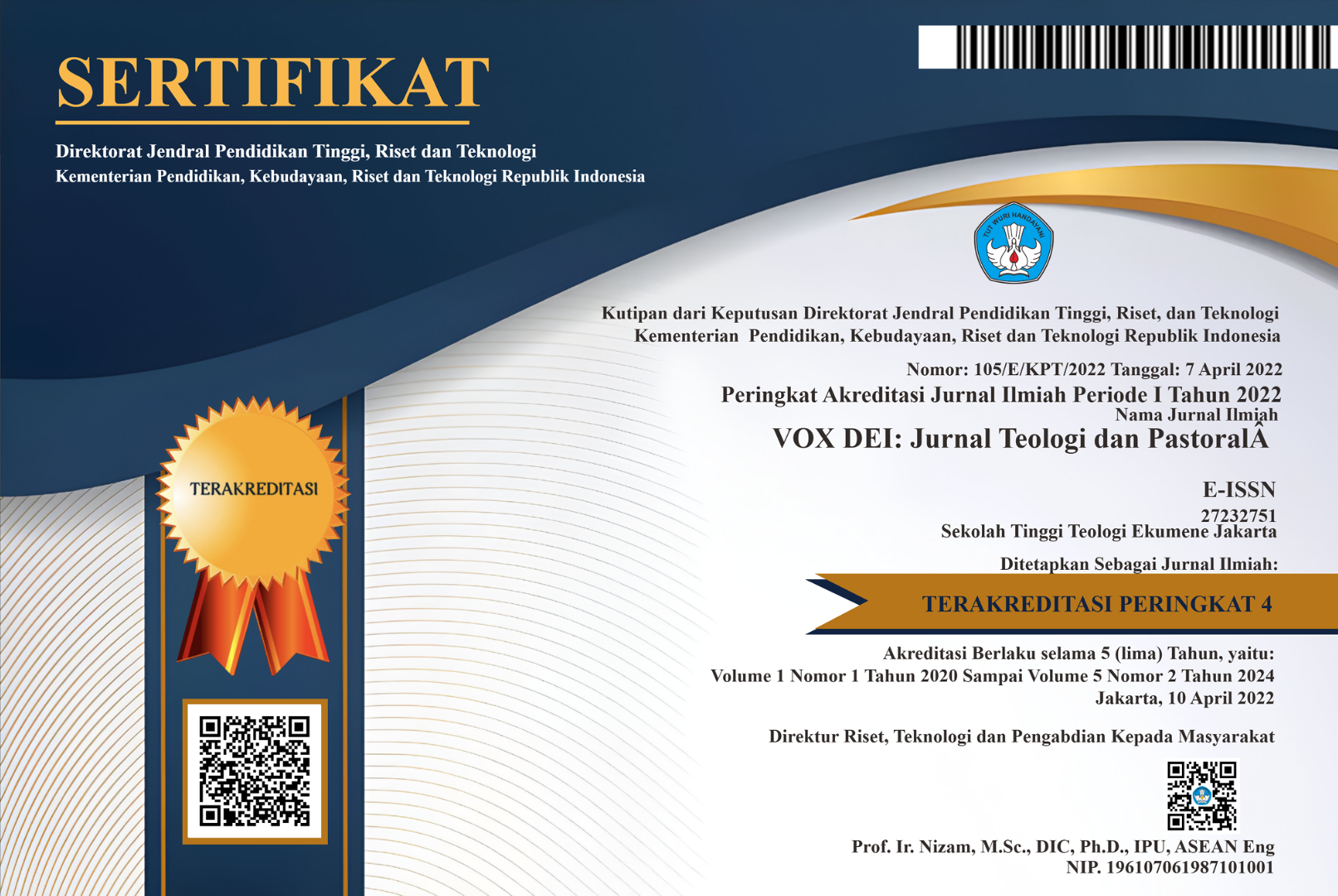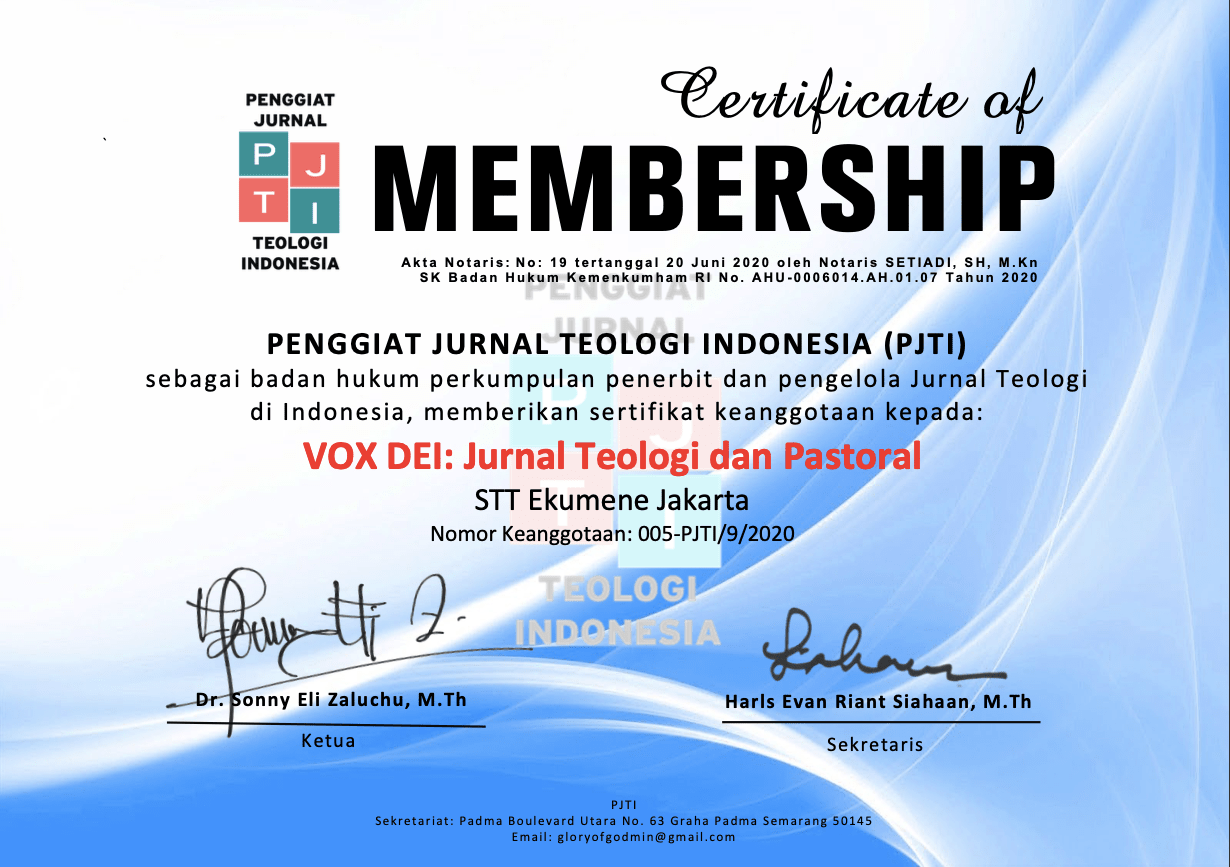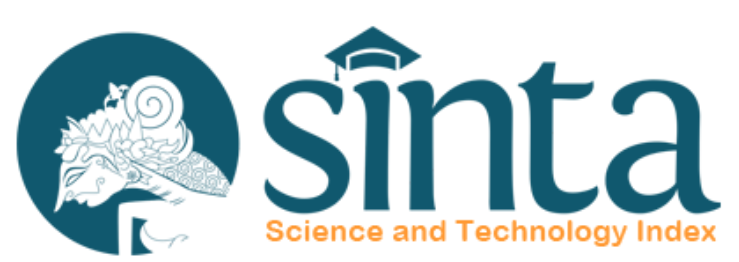Gereja Dalam Pusaran Digitalisasi Dan Humanisasi
Keywords:
digitalization, humanization, religionAbstract
There are at least three major realities that should be highlighted when entering the 21st century, including digitalization that is growing rapidly, humanization that is starting to be intensified, and the intensity of religion fortifying its people in warding off the dangers of technological progress and humanization that has the potential to damage the lives of religious people. Digitalization creates an opium for humans while humanization gives birth to the understanding that humans can live without God. For this, religion must be able to be a filter for the spread of digitalization and humanization and contribute to real contributions. In its development, there are obstacles that the church encountered when it began to try to instill critical values on these two phenomena. The church was later accused of being an institution that restrained its congregation. Consider Nietzsche's thesis that he fought persistently to convince religious people that man occupies a position above religion and all forms of understanding that make human space limited. Man must become a complete man, transcending all existing orders. The term Nietzsche used was Ubermensch. This becomes a serious problem if not addressed wisely. Not after Nietzsche criticized the church, Yuval Harari appeared and confirmed the humanist position but with a note that there must be artificial intelligence that helps humans. Technology is glorified. This is where both Nietzsche and Harari come to a contrasting understanding. After all of the above is mentioned, then using the literature method, this article offers a solution that the church should be present to navigate the direction of technology and humanism. Faced with the rapid development of technology, the church stresses the need for responsible and ethical use of technology.
Downloads
References
Basongan, C. (2022). Penggunaan Teknologi Menurut Iman Kristen Di Era Digital. Edukatif: Jurnal Ilmu Pendidikan, 4(3), 4284.
Burhani, A. N. (2021, Agustus). Ibadah Virtual. Kompas.Id. Https://Www.Kompas.Id/Baca/Opini/2021/08/07/Ibadah-Virtual
Febriana, Suci Ramadhanti & Ayu Desrani, S. R. (2021). Pemetaan Tren Belajar Agama Melalui Media Sosial. Jurnal Perspektif, 14(2), 314.
Hadi, Sumasno. (2012). Konsep Humanisme Yunani Kuno Dan Perkembangannya Dalam Sejarah Pemikiran Filsafat. Jurnal Filsafat, 22(2), 110–111.
Harari, Y. N. (2018). Homo Deus: Masa Depan Umat Manusia. Ciputat: PT. Pustaka Alvabet.
Hardiman, F. B. (2012). Humanisme Dan Sesudahnya: Meninjau Ulang Gagasan Besar Tentang Manusia. Jakarta: Kepustakaan Populer Gramedia.
Hardiman, F. B. (2021). Aku Klik Maka Aku Ada. Yogyakarta: Kanisius.
Juhani, S. (2019). Mengembangkan Teologi Siber Di Indonesia. Jurnal Ledalero, 18(2), 249.
Kuen, M. M, Dkk. (2022). Analisis Homo Deus Dalam Pandangan Harari Serta Fakta Kemajuan Teknologi Di Era Society 5.0. Al-MUNZIR, 15(1), 92. Https://Doi.Org/10.31332/Am.V15i1.3403
Latif, Helen. J, Dkk. (2022). Digitalisasi Sebagai Fasilitas Dan Tantangan Modernisasi Pelayanan Penggembalaan Di Era Pasca-Pandemi: Refleksi Teologi Kisah Para Rasul 20:28. KHARISMATA: Jurnal Teologi Pantekosta, 4(2), 299. Https://Doi.Org/10.47167/Kharis.V4i2.132
Mulyana. (2016). Humanisme Dan Tantangan Kehidupan Beragama Abad Ke 21. Religious: Jurnal Agama Dan Lintas Budaya, 1(1), 44.
Mutaqqin, A. (2013). Karl Marx Dan Friedrich Nietzsche Tentang Agama. Jurnal Dakwah & Komunikasi, 7(1), 8.
Nietzsche, F. (2001). The Gay Science. Cambrigde University Press.
Russell, B. (2007). Sejarah Filsafat Barat: Kaitannya Dengan Kondisi Sosio-Politik Zaman Kuno Hingga Sekarang. Yogyakarta: Pustaka Pelajar.
Saputra, T & Serdianus S. (2022). Peran Pendidikan Agama Kristen Dalam Menjawab Tantangan Perkembangan Teknologi Di Era Posthuman. Jurnal Gamaliel: Teologi Praktika, 4(1), 49. Https://Doi.Org/10.38052/Gamaliel.V4i1.91
Sarwono, J. (2006). Metode Penelitian Kuantitatif Dan Kualitatif. Yogyakarta: Graha Ilmu.
















